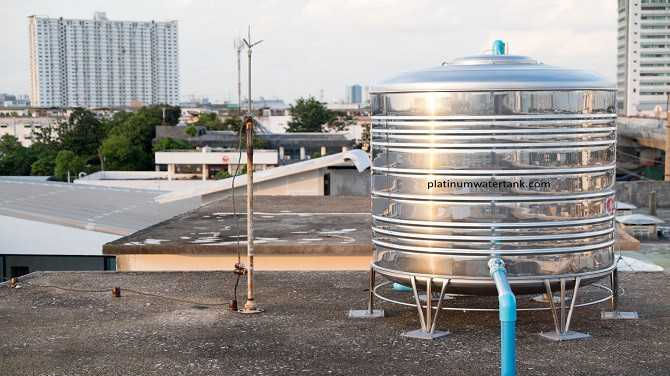How Are SS Water Tanks More Sustainable Than Other Types?
- platinumwatertank
- Dec 7, 2023
- 3 min read

Introduction:
As the world continues to prioritize sustainability, choosing eco-friendly solutions for everyday needs becomes crucial. In the realm of water storage, stainless steel (SS) tanks have emerged as a sustainable alternative, outshining other materials like plastic or concrete. This article delves into the myriad ways in which stainless steel water tanks exemplify sustainability, covering aspects such as longevity, recyclability, energy efficiency, and environmental impact reduction.
Longevity and Reduced Lifecycle Environmental Impact:
Stainless steel water tanks stand out for their exceptional durability and longevity, contributing significantly to their sustainability profile. Unlike plastic or concrete tanks, which may degrade over time, stainless steel maintains its structural integrity for decades. The longevity of SS tanks means fewer replacements are needed, reducing the overall environmental impact associated with manufacturing, transportation, and disposal.
A longer lifespan also means fewer raw materials are consumed over time, contributing to resource conservation. Stainless steel's resistance to corrosion and rust ensures that the tanks remain functional in various environmental conditions, minimizing the need for repairs or replacements due to weather-induced damages.
Recyclability and Closed-Loop Systems:
Stainless steel is a fully recyclable material, and this characteristic adds a layer of sustainability to water storage solutions. The production of top demandable stainless steel often incorporates a significant amount of recycled content, reducing the demand for virgin materials and the associated environmental footprint. At the end of a stainless steel water tank's life, the material can be collected, processed, and repurposed without losing its inherent properties.
Furthermore, stainless steel supports closed-loop systems, where the material can be recycled repeatedly without quality degradation. This closed-loop approach aligns with the principles of a circular economy, minimizing waste and promoting a sustainable, resource-efficient cycle.
Energy Efficiency in Production:
The production of stainless steel involves energy-intensive processes, but advancements in technology have significantly improved the energy efficiency of stainless steel manufacturing. Modern production methods, such as electric arc furnaces, use electricity more efficiently than traditional methods, reducing the overall carbon footprint of stainless steel production.
Additionally, the longevity of stainless steel water tanks contributes to energy efficiency over the long term. The infrequent need for replacements means less energy is expended in manufacturing new tanks and transporting them to end-users. When assessing the sustainability of the most using stainless steel water tanks, it is crucial to consider not only the energy inputs during production but also the energy savings achieved through the extended lifespan of the product.
Reduced Environmental Impact and Health Considerations:
Stainless steel's inert nature makes it an ideal material for storing potable water without compromising its quality. Unlike some plastic tanks that may leach harmful chemicals into the water, stainless steel ensures that the stored water remains clean and safe for consumption. This aspect of stainless steel water tanks directly contributes to environmental and human health sustainability.
Moreover, the resistance of stainless steel to corrosion and rust minimizes the potential for environmental contamination. Leaks or structural failures, common in tanks made from less durable materials, can result in hazardous substances entering the soil and groundwater. Stainless steel tanks mitigate this risk, providing a safer and more sustainable option for water storage.
Conclusion:
In conclusion, stainless steel water tanks emerge as a sustainable choice, offering a combination of longevity, recyclability, energy efficiency, and reduced environmental impact. As societies increasingly prioritize sustainability in all aspects of life, stainless steel water tanks stand out as a responsible and eco-friendly solution for residential water storage. The long-term benefits of choosing stainless steel contribute not only to individual homeowners but also to the broader goal of creating a more sustainable and resilient water infrastructure worldwide.




Comments